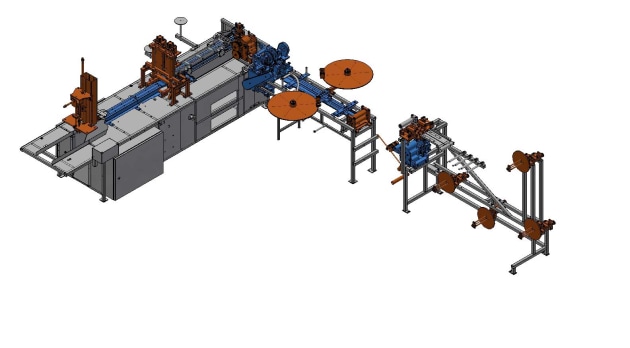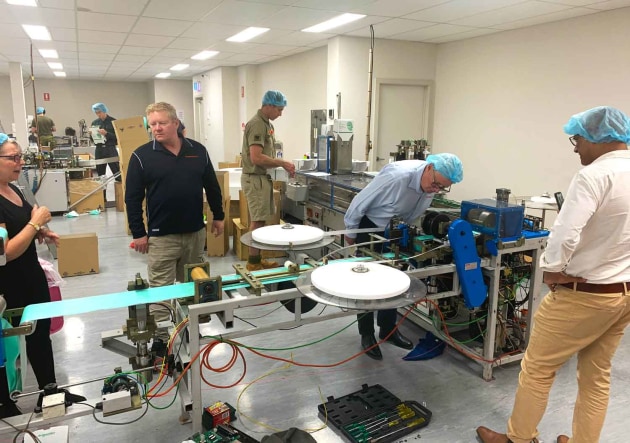Foodmach was recruited five weeks ago to build three surgical mask machines for Med-Con, Australia's only current manufacturer of the critical PPE.
The project is an initiative of the Department of Industry, Science and Technology (DIST). Project Med-Con is now at 60 per cent completion.

Foodmach has faced plenty of challenges over the course of the project.
The original Med-Con machines were designed and built nearly 40 years ago, the original drawings don't exist, the original parts are obsolete, and manufacturing in a pandemic has a few logistical challenges.
Earle Roberts, Foodmach CEO said, “The biggest challenge of all is having eight weeks to deliver on a project that would usually take us five to six months. Some of our team has been working in 12.5-hour shifts 24/7 in order to keep to schedule."
Peter Marks, director at Foodmach said, “Reverse engineering is usually a lengthy process that involves a lot of testing and adjustments.”
“We have 60 days from start to finish to find ways to build a machine that uses parts which no longer exist, and which we've never built before,” Marks said.
"Although 3D models were provided by the Australian Defence Force – which pulled apart a mothballed machine over a weekend in a remarkable team effort – they still needed to be detailed on a part by part basis, materials identified and checks made that they’ll assembly correctly. It hasn't all been plain sailing.”

Marks said there were knowledge gaps around material specifications and tolerances that needed to be resolved. “The old design has been updated to current safety, controls, and interfacing standards,” he said.
The first machine is currently being fitted up and is starting to look like the end product. It has been a triumph of teamwork between Foodmach and its suppliers.
So why didn’t Australia just import machines?
Roberts said, "Installing equipment from overseas has a few challenges, most notably safety, service, and support. In the case of mask machines, there may also be questions around the type and quality of mask produced.”
Ray Stockwell, operations manager of Med-Con said, “We’ve been approached by companies that have imported masks from oversees and rejected them. Some masks are apparently not up to standard – with issues such as smell, adverse skin reactions, poor construction and not meeting Australian technical standards.
“We’d love to help them with mask supply, but until we receive the extra equipment Foodmach is currently engineering for us, we’re at absolute capacity. Our existing machines are already going 24/7,” Stockwell said.
This puts immense pressure on Foodmach to solve the critical shortage. The company said it knows they’re working hard, and it has been marvelling at their progress. “The whole team looks forward to the daily updates on their project blog,” Foodmach said.
“In a matter of weeks, we’ll be able to put three new machines to work and help get quality Australian-manufactured masks in the hands of Australians.”
At a time when Australia needs to on-shore its supply chain and resurrect ailing or extinct manufacturing industries, Project Med-Con is a shining example of what can be achieved. Success, however, requires agility and collaboration at every level.
AMTIL is the Federal Government consultants overseeing the project. Bruno Bello, business advisor for AMTIL said, "Foodmach and Med-Con have the right DNA, attitude, and culture that’s required to have a cohesive workforce and also access to external key partners to support a programme. Some of which, by the way, missed out on this project, so I think it's exceptional.”
With the new machines, Med-Con production will increase mask production from 2 million to 50 million masks per year.
“Whether we manage to keep the curve flat or not, our National Medical Stockpile will be better equipped to assist Australia’s health care workers,” Foodmach said.
Foodmach is keeping a public log of project updates which can be found here.
Foodmach is a member of the Australian Packaging & Processing Machinery Association (APPMA).






